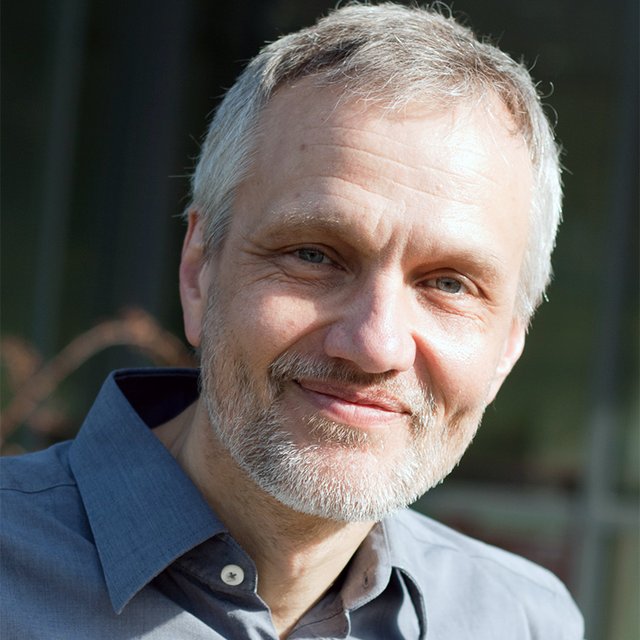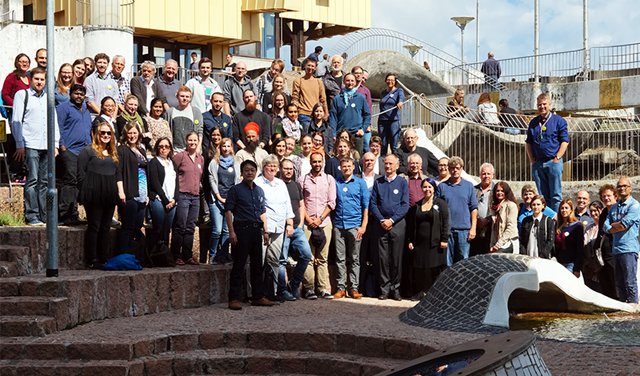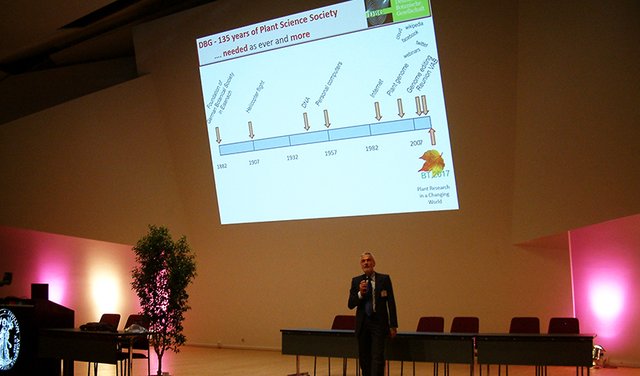Scientists from around the world discussed the fate of proteins at the Leibniz Institute of Plant Biochemistry in Halle/Saale from 11 to 13 September 2017. The “N-term 2017 – Proteostasis via the N-terminus” conference attracted more than 100 specialists to the city on the Saale with 40 presentations in the fields of animal and plant sciences, medicine, and biotechnology. These supposedly different specialist fields notwithstanding, an overarching topic unified the experts: proteostasis (protein homeostasis), the regulation of proteins in living cells. These processes are controlled by what are called post-translational modifications (PTMs) and lead all the way to protein re-localization and proteolysis (protein breakdown). Proteostasis means maintaining the balance between proteins that, as enzymes, control all physiological processes such as the respiration, digestion, development, and immune defense of all living organisms. In order to ensure the correct interplay of all proteins, the proteome, they consistently have to act at the right time in the right place and in the correct manner. Thus the dynamic proteome is subject to continuous aggregation and breakdown. Proteins can be produced as needed, and inactivated and broken down after they fulfill their function. Incorrectly folded, damaged, non-functioning proteins are also identified and disposed of by the cell.


















